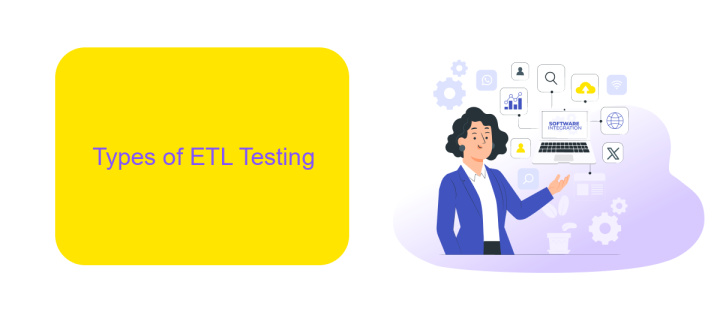ETL Big Data Testing
In the era of big data, ensuring the accuracy and reliability of data processing is crucial. ETL (Extract, Transform, Load) Big Data Testing plays a vital role in validating the data pipeline, ensuring that data is correctly extracted, transformed, and loaded into the target system. This article delves into the methodologies, tools, and best practices for effective ETL testing in big data environments.
Introduction
ETL (Extract, Transform, Load) processes are critical in the realm of Big Data, ensuring that data is accurately and efficiently moved from source systems to data warehouses. ETL testing plays a vital role in verifying that the data transformation and loading processes are executed correctly, maintaining data integrity and quality.
- Data Extraction: Ensuring data is correctly pulled from various sources.
- Data Transformation: Validating that data transformations adhere to business rules and requirements.
- Data Loading: Confirming that data is accurately loaded into the target system.
Effective ETL testing requires robust tools and services. ApiX-Drive is one such service that facilitates seamless integration between diverse data sources and target systems. By automating the data flow, ApiX-Drive helps in minimizing manual errors and enhancing the reliability of the ETL process. This ensures that businesses can trust their data for making informed decisions.
Types of ETL Testing

ETL testing is crucial for ensuring the accuracy and reliability of data as it moves through the Extract, Transform, Load process. There are several types of ETL testing, each serving a specific purpose. Data completeness testing verifies that all expected data is loaded into the target system without any loss. Data accuracy testing ensures that the data transformation rules are correctly applied, and the data in the target system matches the source data. Data transformation testing checks that the data is transformed according to business rules and requirements.
Another key type is performance testing, which evaluates the efficiency and speed of the ETL process to ensure it can handle large volumes of data within acceptable timeframes. Integration testing ensures that the ETL process works seamlessly with other systems and applications. Tools like ApiX-Drive can facilitate these integrations by automating data transfers between various platforms, ensuring smooth and error-free data flow. Finally, data quality testing focuses on the integrity and cleanliness of the data, identifying and rectifying any inconsistencies or errors.
Challenges in ETL Testing

ETL (Extract, Transform, Load) testing is a critical process in data management, ensuring the accuracy and reliability of data as it moves from source to destination. However, this process is fraught with challenges that can impact the integrity of the data.
- Data Volume: Handling large volumes of data can be cumbersome and time-consuming, often requiring significant computational resources.
- Data Quality: Ensuring data quality involves rigorous validation checks, which can be complex and prone to errors.
- Integration Complexity: Integrating various data sources can be challenging, especially when dealing with different data formats and structures. Tools like ApiX-Drive can facilitate seamless integration by automating data workflows.
- Performance Issues: ETL processes can be slow, especially when dealing with real-time data, which can affect overall system performance.
- Security Concerns: Ensuring data security during the ETL process is paramount, requiring robust encryption and access control mechanisms.
Addressing these challenges requires a combination of advanced tools, meticulous planning, and continuous monitoring. Leveraging integration services like ApiX-Drive can significantly streamline the ETL process, ensuring efficient and reliable data management.
Best Practices for ETL Testing

ETL (Extract, Transform, Load) testing is crucial for ensuring the accuracy and reliability of data in big data environments. Proper ETL testing practices help identify data quality issues, validate data transformations, and ensure that data is correctly loaded into the target systems. To achieve effective ETL testing, it is essential to follow best practices that enhance the testing process and improve data integrity.
One of the best practices in ETL testing is to have a comprehensive test plan that outlines the scope, objectives, and methodologies for testing. This plan should include detailed test cases covering all aspects of the ETL process, from data extraction to data loading. Additionally, automating the ETL testing process can save time and reduce human errors. Tools like ApiX-Drive can facilitate the automation of data integration and testing, ensuring seamless data flow between various systems.
- Develop a detailed ETL test plan.
- Automate the ETL testing process.
- Validate data at each stage of the ETL process.
- Perform data quality checks regularly.
- Use version control for ETL scripts and configurations.
By adhering to these best practices, organizations can ensure that their ETL processes are robust, reliable, and capable of handling the complexities of big data environments. This leads to more accurate data analysis and better decision-making across the organization.


Case Studies
One of the most compelling case studies in ETL Big Data Testing involves a leading e-commerce company that needed to streamline its data integration processes. The company faced challenges in handling vast amounts of customer and transaction data from multiple sources. By leveraging ETL testing tools, they were able to validate data accuracy, completeness, and transformation logic. This rigorous testing ensured that data was correctly extracted, transformed, and loaded into their data warehouse, enabling more accurate analytics and reporting.
Another notable example is a financial services firm that integrated ApiX-Drive to automate data workflows between disparate systems. This integration facilitated seamless data transfer and transformation, significantly reducing manual intervention and errors. ETL Big Data Testing played a crucial role in verifying the integrity and reliability of the data as it moved through various stages. The result was a more efficient data pipeline, improved decision-making capabilities, and enhanced operational efficiency.
FAQ
What is ETL in the context of Big Data?
Why is ETL testing important in Big Data projects?
What are the common challenges faced in ETL Big Data testing?
How can automation help in ETL Big Data testing?
What are the key components to test in an ETL process?
Time is the most valuable resource for business today. Almost half of it is wasted on routine tasks. Your employees are constantly forced to perform monotonous tasks that are difficult to classify as important and specialized. You can leave everything as it is by hiring additional employees, or you can automate most of the business processes using the ApiX-Drive online connector to get rid of unnecessary time and money expenses once and for all. The choice is yours!

